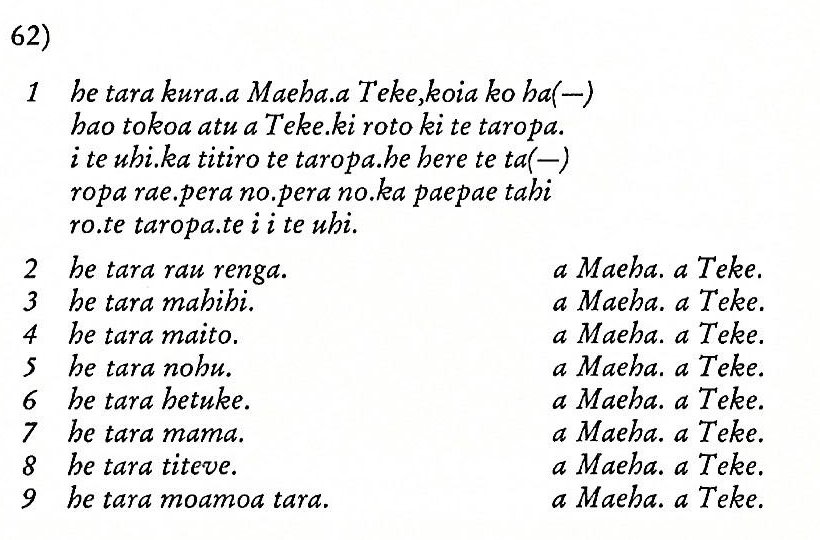

|
he oho.a Teke.raua
ko oti.ko toraua titiro |
Teke,
Oti, and their assistants [toraua titiro]
went on. Teke secretly told [he nave] his
assistants, 'Later during the night you are to
go (there) and dig up the yams of my
(classificatory) brother (tangata taina)
Maeha.
When you have dug out all the big and small
roots, so that nothing is left in the soil (?
ka paepae tahiro), |
|
tokoa, he nave e
Teke.ki toona titiro.ani(-) |
|
ra.i te po.e oho
korua e tuu. e keri i te |
|
uh(i) era o tooku
tangata taina era.a Maeha |
|
ana keri korua rua
nui rua iti ka paepae. |
|
Pae 1.
To end, to come to an end; ku-pae-á taaku
kai, I have no more food; pae-atu, to
leave en masse; ku-pae-atu-á tagata ki
Hangaroa tai. everybody has left for
Hangaroa Bay. 2. To start, to break out (of
wars, fights: taûa); ku-pae-á te taûa,
the fight, the war, has started. 3. Dressed,
edged stones anciently used to enclose a
permanent umu; paepae wall of
undressed stones built as protection against the
wind; also any other protection. Pa'e: Of
a boat, to deviate, to drift, to stray under the
effects of currents or winds; ku-pa'e-á te
vaka i te tokerau, the wind has made the
boat deviate from its course. Vanaga. Paega:
1. Dressed stones forming the foundations of the
ancient houses or of the walls of the monumental
ahus; hare paega, house with stone
foundations; paega-ahu, ahu wall. 2.
Household, people who live in a hare paega.
3. To lay stones on the bottom and against the
sides of a hole: he-paega i te rua.
Vanaga. Pae.
1. Enough. 2. Division of a subject (paiga).
Pau.: paega, a party, a side. Ta.: pae,
division, part. 3. Threshold, sill, joist. P
Ta.: pae, sill, joist. 4. To exhaust, to
finish, past; e ko pae, impregnable;
hakapae, to exhaust, to finish, to end, to
execute, to accomplish, to conclude, to
consummate, to consume, to achieve, to acquit.
Paea: 1. Enough, past. 2. To decay, to
waste away; paea tooa, to deprive.
Paega, foundation. Paepae, pavement,
plank, canoe; hakapaepae, to lay planks,
to floor. P Pau.: paepae, a raft. Mgv.:
paepae, a pavement, to lay up stones with
regularity into a wall. Mq.: paepae,
elevated pavement on which the house is built.
Ta.: paepae, pavement, raft. Paero,
all, totalit, to sweep off all. Churchill.
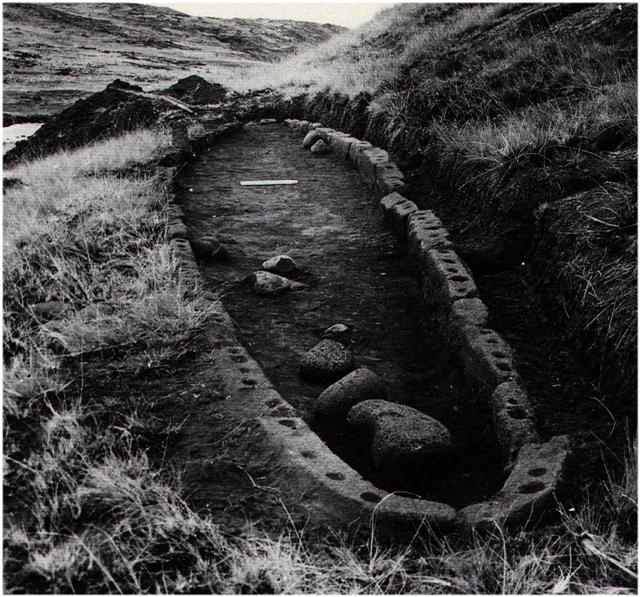
... It is certainly true
that the exterior form of the hare paenga,
when the superstructure and thatch are intact,
resembles an overturned boat, with the form
established by the foundation. However, it is
equally true (and perhaps equally important)
that the configuration of the foundation is
otherwise most like the Rapa Nui vulva
design called komari.
The komari is the
quintessential female symbol which is everywhere
prominent in Rapa Nui art, often carved
in rock and wood, incised on human crania, and
painted on the human body. In the hare paenga
foundation form, the komari is cut in
stone and embedded in the earth, the
cosmologically female realm. Spanning above,
over and virtually into this komari
foundation is the ridgepole 'backbone' and
curved rafter 'ribs' of what I surmise to be a
symbolically male form. In short, we have a
shelter which may be metaphorically understood
as 'the sky father enclosing his progeny as he
embraces the earth'. Those progeny entered and
departed this male/female, earth/sky form
through a low, dark tunnel which may be
logically compared to the birth canal. This
postulated symbolism does not, of course, negate
the 'overturned boat' comparison, since
Polynesian canoes were often likened to the
bodies of great ancestors or to Tane as
First Man. The canoe which transported the first
exploratory voyage to Rapa Nui was said
to have been called The Living Wood, a reference
to Tane. Indeed, it is likely that the
'overturned boat' concept and its relationship
to home, hearth and lineage, which is so
graphically visible, was commonly understood
(hence its retention in the oral literature),
while the more esoteric godly connections,
perhaps along the lines of those explored here,
were known only by spiritual leaders ...
 |
|
E:59 |
|
tahi ro.e
hatihati. e
hakapiipii.ki rava
mai |
then
you shall break them up completely and rub the
pieces in your hands. This way, when Maeha names
them, I can find out the names of the various
kinds of yams.' [te ingoa.o te uhi] |
|
ai e au te
ingoa.o te uhi.ana ki (crossed out:
e teke).
e Maeha |
|
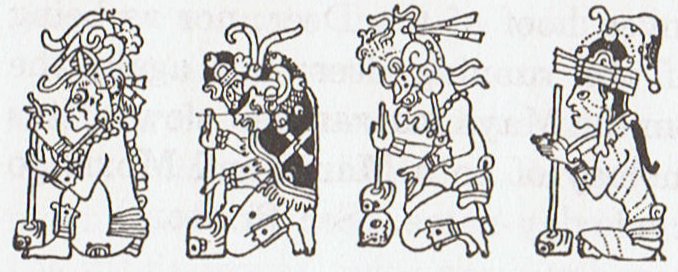 |
|
he ki hokoou a
Teke.ki toona titiro.e keo |
Then
Teke said to his assistants, 'Work quickly until
late at night (? or 'until it gets light',
ite ao ana), |
|
mai korua i te ao
ana.ana mai i te taro- |
|
Hati 1. To break (v.t., v.i.); figuratively:
he hati te pou oka, to die, of a hopu
manu in the exercise of his office (en route
from Motu Nui to Orongo). 2.
Closing word of certain songs. Vanaga. Hahati.
1. To break (see hati). 2. Roughly
treated, broken (from physical exertion: ku
hahati á te hakari) 3. To take to the sea:
he hahati te vaka. Vanaga. Ha(ha)ti.
To strike, to break, to peel off bark; slip,
cutting, breaking, flow, wave (aati,
ati, hahati); tai hati,
breakers, surf; tumu hatihati, weak in
the legs; hakahati, to persuade;
hatipu, slate. P Pau.: fati, to
break. Mgv.: ati, hati, to break,
to smash. Mq.: fati, hati, id.
Ta.: fati, to rupture, to break, to
conquer. Churchill. HAKI, v. Haw.,
also ha'i and ha'e, primary
meaning to break open, separate, as the lips
about to speak, to break, as a bone or other
brittle thing, to break off, to stop, tear,
rend, to speak, tell, bark as a dog; hahai,
to break away, follow, pursue, chase; hai,
a broken place, a joint; hakina, a
portion, part; ha'ina, saying; hae,
something torn, as a piece of kapa or
cloth, a flog, ensign. Sam., fati, to
break, break off; fa'i, to break off,
pluck off, as a leaf, wrench off; fai, to
say, speak, abuse, deride; sae, to tear
off, rend; ma-sae, torn. Tah., fati,
to break, break up, broken; fai, confess,
reveal, deceive; faifai, to gather or
pick fruit; haea, torn, rent; s.
deceit, duplicity; hae-hae, tear
anything, break an agreement; hahae, id.
Tong., fati, break, rend. Marqu., fati,
fe-fati, to break, tear, rend; fai,
to tell, confess; fefai, to dispute. The
same double meaning of 'to break' and 'to say'
is found in the New Zealand and other Polynesian
dialects.
Malg., hai, haïk, voice, address,
call. Lat., seco, cut off, cleave,
divide; securis, hatchet; segmentum,
cutting, division, fragment; seculum (sc.
temporis), sector, follow eagerly, chase,
pursue; sequor, follow; sica, a
dagger; sicilis, id., a knife; saga,
sagus, a fortune-teller. Greek, άγνυμι,
break, snap, shiver, from Ѓαγ
(Liddell and Scott); άγν,
breakage, fragment;
έκας, adv, far off, far away.
Liddell and Scott consider έκας akin to
έκαςτος,
each, every, 'in the sense of apart, by itself',
and they refer to the analysis of Curtius ...
comparing Sanskrit
kas,
kâ,
kat (quis,
qua,
quid),
who of two, of many, &c. Doubtless
έκας and
έκαςτος
are akin 'in the sense of apart, by itself', but
that sense arises from the previous sense of
separating, cutting off, breaking off, and thus
more naturally connects itself with the Latin
sec-o,
sac-er,
and that family of words and ideas, than with
such a forced compound as
είς and
κας. Sanskr., sach, to follow. Zend,
hach, id. (Vid. Haug, 'Essay on Parsis'.)
I am well aware that most, perhaps all,
prominent philologists of the present time -
'whose shoe-strings I am not worthy to unlace' -
refer the Latin
sequor,
secus, even
sacer,
and the Greek
έπω, έπομαι, to this Sanskrit sach.
Benfey even refers the Greek έκας to this
sach, as explanatory of its origin and
meaning. But, under correction, and even without
the Polynesian congeners, I should hold that
sach, 'to follow', in order to be a relative
to sacer, doubtless originally meaning
'set apart', then 'devoted, holy', and of
έκας, 'far off', doubtless originally
meaning something 'separated', 'cut off from,
apart from', must also originally have had a
meaning of 'to be separated from, apart from',
and then derivatively 'to come after, to
follow'. The sense of 'to follow' implies the
sense of 'to be apart from, to come after',
something preceding. The links of this
connection in sense are lost in Sanskrit, but
still survive in the Polynesian haki,
fati, and its contracted form hai,
fai, hahai, as shown above. I am
therefore inclined to rank the Latin sequor as a
derivative of seco, 'to cut off, take
off'. Welsh, haciaw, to hack; hag,
a gash, cut; segur, apart, separate;
segru, to put apart; hoc, a
bill-hook; hicel, id. A.-Sax., saga,
a saw; seax, knife; haccan, to
cut, hack; sægan, to saw; saga,
speech, story; secan, to seek. Anc.
Germ., seh, sech, a ploughshare.
Perhaps the Goth. hakul, A.-Sax.
hacele, a cloak, ultimately refer themselves
to the Polynes. hae, a piece of cloth, a
flag. Anc. Slav., sieshti (siekā),
to cut; siekyra, hatchet. Judge Andrews
in his Hawaiian-English Dictionary observes the
connection in Hawaiian ideas between 'speaking,
declaring', and 'breaking'. The primary idea,
which probably underlies both, is found in the
Hawaiian 'to open, to separate, as the lips in
speaking or about to speak'; and it will be
observed that the same development in two
directions shows itself in all the Polynesian
diaclects, as well as in several of the West
Aryan dialects also. Fornander.
Piki.
To climb, to mount, to go up; piki aruga,
to surpass; pikipiki, to embark, to go
aboard; hakapiki, to climb. P Pau.:
piki, to climb, to ascend, to mount. Mgv.:
piki, to mount, to go up, to climb. Mq.:
piki, pií, to mount, to climb, to
go aloft. Ta.: pii, to mount. Pikiga,
ascent, steps, stairs; Mgv.: pikiga, a
stair, ladder, step. Pikipiki: rauoho
pikipiki, black hair and curly. P Pau.:
tupikipiki, to curl, to frizzle.
Churchill. Pau.: pikiafare, cat. Ta.:
piiafare, id. Churchill. PI'I, v.
Haw., to strike upon or extend, as the
shadow on the ground or on a wall; to ascend, go
up. N. Zeal., piki, to ascend. Sam.:
pi'i, to cling to to climb. Marqu., piki,
to climb, ascend; piki-a, steps,
acclivity. Tong., piki, to adhere to, to
climb, ascend. Fiji., bici-bici, a
peculiar kind of marking on native
cloth.Sanskr., pin'j, to dye or colour;
pin'jara, yellow, tawny. Lat., pingo,
to paint, represent, embroider. The marking out
or tracing a shadow on the ground or on a wall
was probably the primary attempt at painting. In
the Hawaiian alone the sense of an ascent,
compared to the lengthening of the shadows, has
been retained. As the sun descended the shadows
were thought to ascend or creep up the
mountain-side. The sense of 'marking, tracing',
seems only to have been retained in the Fijian,
where so much other archaic Polynesian lore has
been retained, and thus brings this word in
connection with the Sanskrit and Latin.
Fornander.
Pi. Mgv.:
pi,
full, complete. Mq.: pi,
id. Churchill.
Ta.: pi,
young, green. Ma.: pipi,
half-grown, not matured. Churchill.
PI, v. Haw., to sprinkle, as water;
to throw water with the hand; pi-pi,
ka-pi, id. Sam., pi, to splash, slap,
as a fish in a trap; ta-pi, rinse with
fresh water; pisi, to splash with water.
Tah., pi-pi, sprinkle with water.
Sanskr., pi = pâ, to drink; piv,
id.; pinu, to sprinkle; pitha, a
drink, water; pipâsâ, thirst. Greek,
πινω, to drink; πιστρα, a drinking
trough, drink, water; πιπισκω,
give to drink; πωμα,
drink, liquor, &c. Lat., bibo,
to drink; bibulus,
potus.
Slav., pi,
piti,
pivati,
to drink.The transition from the sense conveyed
in the Polynesian to that in the West Aryan
tongues will be intelligible to those who have
observed the manner of drinking which probably
obtained before cups or containers were used,
and which is still very common among the
Polynesians when travelling; it is by 'throwing
the water with the hand' from the spring or
river to the mouth. That primary sense seems to
have survived in the Sanskrit pinu,
to sprinkle. Fornander.
... in the ceremonial
course of the coming year, the king is
symbolically transposed toward the Lono
pole of Hawaiian divinity ... It need only be
noticed that the renewal of kingship at the
climax of the Makahiki coincides with the
rebirth of nature. For in the ideal ritual
calendar, the kali'i battle follows the
autumnal appearance of the Pleiades, by
thirty-three days - thus precisely, in the late
eighteenth century, 21 December, the winter
solstice. The king returns to power with the
sun. Whereas, over the next two days, Lono
plays the part of the sacrifice. The Makahiki
effigy is dismantled and hidden away in a rite
watched over by the king's 'living god',
Kahoali'i or 'The-Companion-of-the-King',
the one who is also known as 'Death-is-Near' (Koke-na-make).
Close kinsman of the king as his ceremonial
double, Kahoali'i swallows the eye of the
victim in ceremonies of human sacrifice ... In
the deep night before the image [of Lono]
is first seen, there is a Makahiki
ceremony called 'splashing-water' (hi'uwai). Kepelino
tells of sacred chiefs being carried to the
water where the people in their finery are
bathing; in the excitement created by the beauty
of their attire, 'one person was attracted to
another, and the result', says this convert to
Catholicism, 'was by no means good'. At dawn,
when the people emerged from their amorous
sport, there standing on the beach was the image
of Lono. White tapa cloth and
skins of the ka'upu bird hang from the
horizontal bar of the tall crosspiece image. The
ka'upu is almost certainly the albatross,
a migratory bird that appears in the western
Hawaiian chain - the white Lanyon albatross at
Ni'ihau Island - to breed and lay eggs in
October-November, or the beginning of the
Makahiki season ...
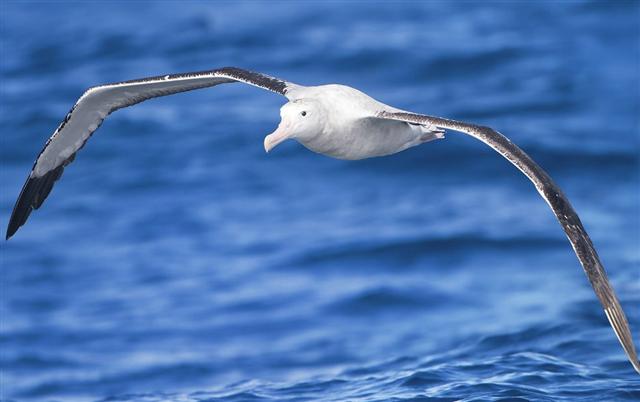 |
|
pa.mo hahao o te
uhi.he hakahoki mai |
when
you shall take the baskets
and fill them up with yams.' To this they
replied, 'Agreed.' |
|
i te kī.ku mao
ana.he oho.a Teke.he tuu ki te |
|
... As has already been mentioned, the Delphians
worshipped Dionysus once a year as the new-born
child, Liknites, 'the Child in the
Harvest Basket', which was a shovel-shaped
basket of rush and osier used as a harvest
basket, a cradle, a manger, and a winnowing-fan
for tossing the grain up into the air against
the wind, to separate it from the chaff. The
worship of the Divine Child was established in
Minoan Crete, its most famous early home in
Europe. In 1903, on the site of the temple of
Dictaean Zeues - the Zeus who was yearly born in
Rhea's cave at Dicte near Cnossos, where
Pythagoras spent 'thrice nine hallowed days'
[27] of his initiation - was found a Greek hymn
which seems to preserve the original Minoan
formula in which the gypsum- [white-] powdered,
sword-dancing Curetes, or tutors, saluted the
Child at his birthday feast. In it he is hailed
as 'the Cronian one' who comes yearly to Dicte
mounted on a sow and escorted by a
spirit-throng, and begged for peace and plenty
as a reward for their joyful leaps ... |
|
hare o
Maeha.he tuu
he no(ho). i ira
ana i moe ai |
Teke
went away and came to the house of Maeha [he
tuu ki te hare o Maeha]. There he lay
down (?) as though he were going to sleep that
night. |
|
i tau po era. |
|
Ma'eha. Brightness, bright, to lighten, to
brighten up; ku ma'eha-á, it has already
lightened up. Vanaga. 1. Light, brightness; to
shine, to be bright, to glimmer, to glow;
maeha mahina, moonshine; maeharaa,
sunrise. Maehamaeha, bright. Hakamaeha,
to brighten. Mq.: maeoeo, bright,
transparent. 2. To get out of the way. 3. Thin,
slender, slight. Churchill.
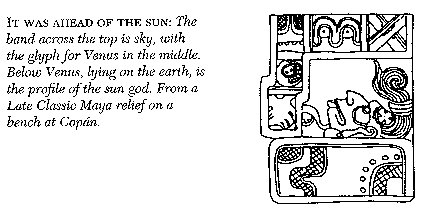
Noi.
To bend down toward the ground, to bow down,
to worship. Hakanoi, to prostrate
oneself. Ta.: Noinoi, small, fine. Mq.:
noi, a dwarf, of slow growth. Ha.:
noinoi, small, as a dwarf. Churchill. |
|
he po.he oho.
te tangata.erima te kauatu.ki te |
It grew
dark [he po], and fifty men came to dig
up the yams. They arrived [he tuu), dug
out [he keri] the yam roots, and rubbed
small pieces of them between their hands [hakapiipii
→ Tah., pi-pi, sprinkle with
water] ... |
|
uhi keri.he tuu he
keri. i te uhi
hakapii(-) |
|
Keri. To dig, to grub up, to root up, to
excavate, to mine; rubbish; the wake of a ship;
to sow (kekeri). Kerikeri, to
scratch. Keriga, excavation. Kerihaga
oone, farmer. P Pau.: keri, to
dig. Mgv.: keri, to dig, to scrape. Mq.:
kei, to dig, to spade up, to excavate, to
work the soil. Ta.: eri, to mine. The
manner of digging underlies the sense of this
word; the digging implement is a sharpened stick
(oka) driven into the earth by arm power
and then used as a lever to loosen the mold.
Churchill.
... Then the canoe was
made to drink salt water; it was dipped forwards
and backwards in the waves of the great moving
altar of the gods and thus consecrated to
Tane. A marae was made for him in the
little house aft of the deck, and the three
masts were rigged with ropes and strong mats for
sails and long tapa pennants streaming
from them ...
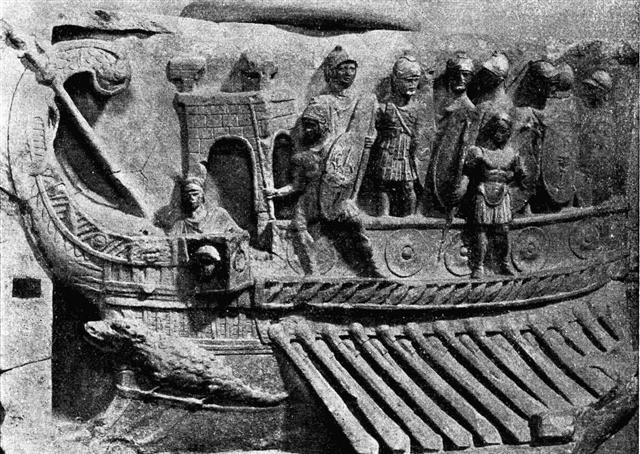 |
|
pii i te uhi.he
ngaroa e Maeha.te heruru
(crossed out: |
Maeha
heard something, namely the noise that the men
made, and he said [he ki mai mai te rua
painga] from the other side (of the house)
to Teke, 'Hey you! This is the first time that
such a noise has been heard at night.'
[he ki mai a Teke] Teke answered from
his side (of the house) [mai toona
painga], 'My feet have made the noise that
you heard.' [he vae ooku tau hetu ena.a koe
hakarongo ena] And he very carefully [koro
iti] made a noise [hakahetu] with his
feet [i toona vae]. |
|
o Maeha)
o te tangata.heki mai mai te rua
painga |
|
kia Teke.he ro koe
ka tahi ana po.i he ruru ro mai |
|
he ki mai a
Teke.mai toona painga.he vae ooku |
|
tau hetu ena.a koe
e hakarongo ena.ai ka haka(-) |
|
Ru. A
chill, to shiver, to shudder, to quake;
manava ru, groan. Ruru, fever, chill,
to shiver, to shake, to tremble, to quiver, to
vibrate, commotion, to apprehend, moved, to
agitate, to strike the water, to print;
manava ruru, alarm; rima ruru, to
shake hands. P Pau.: ruru, to shake, to
tremble. Mgv.: ru, to shiver with cold,
to shake with fever, to tremble. Mq.: ú,
to tremble, to quiver. Ta.: ruru, to
tremble. Churchill. Mgv.: eager, in haste,
impatient. Ta.: ru, impatience, haste.
Churchill. Ruru, to tremble, an
earthquake. Sa.: lūlū,
lue,
to shake. To.: luelue,
to roll; lulu,
to shake. Fu.: lulū,
to tremble, to shake, to agitate. Niuē:
luelue, to
shake; lūlū,
to shake, to be shaken. Nuguria: ruhe,
motion of the hands in dancing; luhe
henua, an
earthquake. Uvea, Ha.: lu,
lulu,
lululu,
to shake, to tremble, to flap. Fotuna:
no-ruruia,
to shake. Ma.: ru,
ruru,
to shake, an earthquake. Ta., Rarotonga,
Rapanui, Pau.: ruru,
to shake, to tremble. Mgv.: ru,
to tremble; ruru,
to shake. Mq.: uu,
to shake the head in negation; uuuu,
to shake up. Uvea: ue i,
to shake; ueue,
to move. Rapanui: ueue,
to shake. Churchill 2.
... When this tremendous task had been
accomplished Atea took a third husband,
Fa'a-hotu, Make Fruitful. Then occurred a
curious event. Whether Atea had wearied
of bringing forth offspring we are not told, but
certain it is that Atea and her husband
Fa'a-hotu exchanged sexes. Then the
[male] eyes of Atea glanced down at those
of his wife Hotu and they begat Ru.
It was this Ru who explored the whole
earth and divided it into north, south, east,
and west ...
Paina.
Human likeness, large doll (made in ancient
times). Vanaga. T. To make a noise. H. To sound,
as in breaking or tearing anything. Churchill. -
... Der Cultus bestand in Anrufung der Götter,
deren Willen der Priester erklärte, in Opfern an
Lebensmitteln, auch an Menschen, und in der
Feier gewisser, zu bestimmten Zeiten
wiederkehrender Feste (rakauti), von
denen das erste im Früjahr 2 Monate dauerte, das
zweite im Sommer mit der Errichtung einer
Pyramide aus Zweigen (paina) endete, das
dritte in den Winter fiel; bei allen fanden
Tänze, Gesänge, Spiele aller Art statt ... |
|
Teke and Maeha were 'brothers',
located at opposite sides of 'the house'.
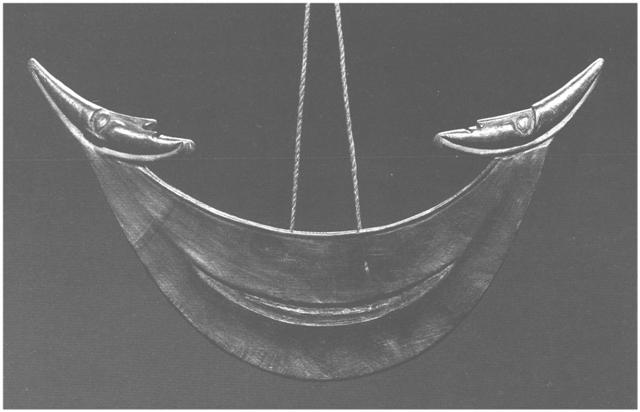 |
|
hetu koro iti no.i
toona vae.he otea.he ea a Teke |
It grew
light [he otea] and Teke went out [he
ea a Teke ki haho] in the twilight to
urinate [i te po ana mimi]. |
|
ki haho.i te po ana
mimi.he ki hokoou mai |
|
... There was no water in the
village. The lakes and rivers were dry. Raven
and Crow, two young girls who were having their
first menstrual courses, were told to go and
draw water from the ocean. Finding the journey
too long, Raven decided just to urinate into her
basket-bucket. She decieved no one and was
severly scolded. Crow returned much later but
with drinking water. As a punishment, Raven was
condemned never to find water in the summer;
only in winter would she find something to
drink. For that reason the Raven never drinks
during the hot months; she speaks with a raucous
voice because of her dry throat ...
Puku.
1. To feel an urge to defecate or to urinate,
etc.: ku-puku-á te mimi: to need to
urinate. 2. Rock, boulder: puku ma'ea;
puku oone, hillock, earth mound. Vanaga.
... On the fifteenth day of the month of October
(tangaroa uri), Nonoma left
the house during the night to urinate outside
...
(E:75 → 59 + 16)
|
1 |
60 |
Banana shoots |
te huri maika |
|
2 |
61 |
Taro seedlings |
te uru taro |
|
3 |
62 |
Sections of Sugarcane |
tepupura toa |
|
4 |
63 |
Yam roots |
te uhi |
|
5 |
64 |
Sweet potatoes |
te rau kumara |
|
6 |
65 |
Hauhau trees |
te hauhau |
|
7 |
66 |
Paper Mulberry trees |
te mahute |
|
8 |
67 |
Sandalwood trees |
te naunau |
|
9 |
68 |
Toromiro trees |
te toromiro |
|
10 |
69 |
Ferns |
te riku |
|
11 |
70 |
Rushes |
te ngaatu |
|
12 |
71 |
Yellow roots |
te pua |
|
13 |
72 |
Tavari plants |
te tavari |
|
14 |
73 |
Moss |
te para |
|
15 |
74 |
Nga Oho plants |
te ngaoho |
|
16 |
75 |
Grass |
te mauku tokoa |
|
|
E:60 →
March 1 |
|
mai
te haha o te hare.o
haho a Teke.he ro koe |
Then [hokoou]
Teke called out from the door, from outside [o
haho], 'Hey you! Hurry out to our yams! [ka
ea mai koe ki te uhi]'
The digging of the yams was over [ka pae
ana te keri] and the thieves had stolen [ku
toke] the yams.
Earlier Teke's men had placed [ku noho era] the
baskets in front of the house [i mua i te
hare], every one of his baskets (? ka
paepae tahi ro). |
|
ka ea mai koe ki te
uhi ka pae ana te
keri.ku |
|
toke ana e te
kori.ku noho era ana te tangata |
|
o Teke.i mua i te
hare.taana taropa.taana taro(-) |
|
pa.anakeanake.ka.
paepae tahi ro. he ea |
|
Haha. 1. Mouth (oral cavity, as opposed to
gutu, lips). 2. To carry piggy-back.
He haha te poki i toona matu'a, the child
took his father on his back. Ka haha mai,
get onto my back (so I may carry you). Vanaga.
1. To grope, to feel one's way; po haha,
darkness, obscure. 2. Mouth, chops, door,
entrance, window; haha pipi, small mouth;
haha pipiro, foul breath; ohio haha,
bit of bridle; tiaki haha, porter,
doorkeeper. Churchill.
Hare. House, family, home. Vanaga.
House, cabin, habitation, building, hut,
structure; hare iti, hut; hare itiiti
no, cabin; hare kahu, tent;
hare neinei, latrine; hare no iti,
cell; hare nunui, palace; hare
pohurihuri, prison; hare pure,
chapel, church; ki te hare, at home.
Harepepe, kelp. Harepiko, a. asylum,
place of refuge; b. ambush, snare. Harepopo,
shed. Harepopokai, storehouse. Churchill.
Pae.
1. To end, to come to an end; ku-pae-á
taaku kai, I have no more food; pae-atu,
to leave en masse; ku-pae-atu-á
tagata ki Hangaroa tai. everybody has left
for Hangaroa Bay. 2. To start, to break
out (of wars, fights: taûa); ku-pae-á
te taûa, the fight, the war, has started. 3.
Dressed, edged stones anciently used to enclose
a permanent umu; paepae wall of
undressed stones built as protection against the
wind; also any other protection. Pa'e: Of
a boat, to deviate, to drift, to stray under the
effects of currents or winds; ku-pa'e-á te
vaka i te tokerau, the wind has made the
boat deviate from its course. Vanaga. Paega:
1. Dressed stones forming the foundations of the
ancient houses or of the walls of the monumental
ahus; hare paega, house with stone
foundations; paega-ahu, ahu wall. 2.
Household, people who live in a hare paega.
3. To lay stones on the bottom and against the
sides of a hole: he-paega i te rua.
Vanaga. 1. Enough. 2. Division of a subject (paiga).
Pau.: paega, a party, a side. Ta.: pae,
division, part. 3. Threshold, sill, joist. P
Ta.: pae, sill, joist. 4. To exhaust, to
finish, past; e ko pae, impregnable;
hakapae, to exhaust, to finish, to end, to
execute, to accomplish, to conclude, to
consummate, to consume, to achieve, to acquit.
Paea: 1. Enough, past. 2. To decay, to
waste away; paea tooa, to deprive.
Paega, foundation. Paepae, pavement,
plank, canoe; hakapaepae, to lay planks,
to floor. P Pau.: paepae, a raft. Mgv.:
paepae, a pavement, to lay up stones with
regularity into a wall. Mq.: paepae,
elevated pavement on which the house is built.
Ta.: paepae, pavement, raft. Paero,
all, totalit, to sweep off all. Churchill.
|
1 |
2 |
3 |
4 |
5 |
|
Maui mua |
Maui roto |
Maui taha |
Maui pae |
Maui tikitiki |
|
First |
Middle |
Side |
Edge |
Topknot |
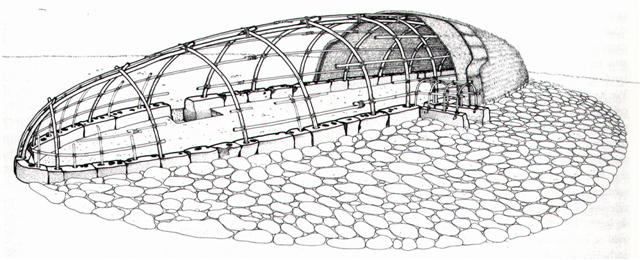
|
|
mai a Maeha.mai
roto mai te hare ki |
Maeha
came out of the house, saw the yam (plantation)
[he ui i te uhi], and said, 'The yams are
gone because of the theft for the king.' [ku
pae ana te uhi.i te kori mo te Ariki] |
|
haho.he ui i te
uhi.he ki a Maeha.ka |
|
ki era.ku pae ana
te uhi.i te kori mo te |
|
Ariki.he oho.a
Maeha.raua ko Teke. |
Maeha
and Teke went out [he oho.a Maeha.raua ko
Teke] and inspected the yam (plantations).
There it was, Teke's basket [koia ko
taropa a Teke], which is used to store yams. |
|
hee rara i te
uhi.koia ko taropa |
|
a Teke.e mau era mo
hahao o te uhi |
|
he rapu mai hai
rima ki toona titiro |
He
motioned to his assistants with his hand [he
rapu mai hai rima], 'Come here and take the
basket and put in the yams.' |
|
ka oho mai.ka mau
mai te taropa. |
|
mo hahao o te
uhi.he mau te titiro o Teke |
Teke's assistants
took the basket. [he mau te titiro o Teke i
te taropa] |
|
i te taropa.ku nave
tokoa ana e Teke.kia |
Teke
had told Oti about the secret in (words), (i.e.,
in amicable familiarity) [ku nave tokoa ana e
Teke.kia Oti], had secretly talked to his
assistants to dig out the yams. |
|
Oti.i tau mahana
era nave ki too- |
|
na tiro mo keri i
te uhi. |
|
Mahana. 1. Tepid, lukewarm, warm; vai
mahana, warm water. 2. To stop raining;
he-mahana te ûa, the rain has stopped.
Vanaga. 1. Heat, hot (maana, hana,
pumahana); mahana ke, suffocating;
mahana nui, stifling; mahana no
iti, lukewarm; vera mahana, hot;
hakamahana, to heat, to scald, to warm over.
2. Finery. Churchill.
The five stages of a baby's
development are: kaukau, puepe, tahuri,
totoro, mahaga. Puepue = said of a
newborn baby when, a few weeks old, it begins to
distinguish people and objects: ku-puepue-á
te poki. Tahuri = of a new-born baby,
to move from side to side: ku-tahuri-á te
poki. Totoro = to crawl; ki totoro
te poki, when the baby crawls. Mahaga
= baby when able to stand by itself. Vanaga. [oti
→ Oti] |
|
E:61
→ 11 * 11 - 60
(stones) = 61 (holes) = 5 + 6 + 7 + 8 + 9 + 8 +
7 + 6 + 5 = 2 * 26 + 9
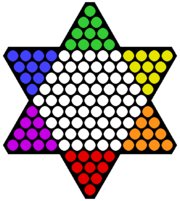 |
|
he ki a Teke.kia
Oti.ana ui mai koe ana |
Teke said
to Oti, 'When you see [ana ui mai koe] that Maeha is coming out of
the house and is walking [oho ki vaenga] over
to the yam plantation, then two [hokorua, 2] of you shall look
around, enter [uru] into the house, and take
[too] the stone figure (moai maea)
that is lying there. (Her) name is Te Takapau.' |
|
ea mau ko Maeha.mai
roto mai te hare |
|
ana oho ki
vaenga ki te uhi.e
ui tou hokoru(-) |
|
a.e uru korua ki
roto ki te hare. e too mai |
|
i te moai maea ena
e moe ena.ko
te takapau |
|
te ingoa. |
|
Nohovaega,
to preside. Churchill. Vaega, middle,
centre; i vaega o, in the middle of.
Vanaga. Vaehakaroa (vae 1 - roa):
moe vaehakaroa, to sleep with legs
stretched out. Roaroa tahaga, middle
finger. Vanaga
Moe.
To sleep, to lie at full length, to dream,
to brood, to place, to cohabit; moe atu,
to leave off, to desist; moe atu ra, to
adjourn, to postpone; moe hakahepo, to
talk in the deep; moe aherepo,
somnambulist, sleepwalker; moe
hakataha, to sleep on the side; moe no,
to oversleep, concubinage; moe tahae, to
be a light sleeper; moe tahaga, a
sleeper; moe vaeahatu, moe hakaroa,
to sleep sprawling; rava moe, to sleep
sound; ariga moe ki raro, to lie
flat on the ground; tae moe, bachelor;
hakamoe, to brood, to fold the wings; to
reserve, to lay up; to struggle. P Pau.: moe,
sleep. Mgv.: moe, sleep, to lie down,
coitus, to shut the eyes. Mq.: moe, to
sleep, to lie down; haámoe, to set down
on the ground. Ta.: moe, to sleep, to lie
down. Moea raruga, lying flat. Moeaivi,
thin. Mq.: ivi, haáivi, id. Ta.:
ivi, id. Moega, mat. Pau.:
moehega, bed. Mgv.: moega, a sleeping
mat. Mq.: moena, moeka, mat, floor
cloth, bed. Ta.: moea, bed. Moemata,
to sleep with the eyes open; mea moemata,
phantom. Moemoea, a dream, vision;
tikeahaga moemoea, apparition by
night. T Mgv., Mq., Ta.: moemoea, dream.
Churchill. Mgv. Moemoe, to steal, to
purloin at a food distribution. Mq.: moemoe,
to seize, to grasp. Churchill. Ta.: 1.
Moemoe, ambush. Ha.: moemoe, id. 2.
Moemoe, Phyllanthus simplex. To.:
mohemohe, a tree. Churchill. Mq.: Moehu,
exiled, banished, prisoner of war. Ma.:
morehu, a survivor. Churchill.
... When they arrived at the
place where Hine nui lay asleep with her
legs apart and they could see those flints that
were set between her thighs, Maui said to
his companions: Now, my little friends, when you
see me crawl into the body of this old
chieftainess, whatever you do, do not laugh ...
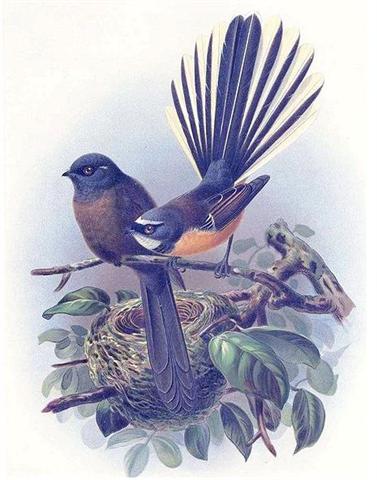
Taka,
takataka.
Circle; to form circles, to gather, to get
together (of people). Vanaga. 1. A dredge. P
Mgv.: akataka,
to fish all day or all night with the line, to
throw the fishing line here and there. This can
only apply to some sort of net used in fishing.
We find in Samoa
ta'ā a small fishing line, Tonga taka
the short line attached to fish hooks, Futuna
taka-taka a fishing party of women in the
reef pools (net), Maori takā the thread
by which the fishhook is fastened to the line,
Hawaii kaa in the same sense, Marquesas
takako a badly spun thread, Mangareva
takara a thread for fastening the bait on
the hook. 2. Ruddy. 3. Wheel, arch; takataka,
ball, spherical, round, circle, oval, to roll in
a circle, wheel, circular piece of wood, around;
miro takataka, bush; haga takataka,
to disjoin; hakatakataka, to round, to
concentrate. P Pau.: fakatakataka, to
whirl around. Mq.: taka, to gird. Ta.:
taa, circular piece which connects the frame
of a house. Churchill. Takai, a curl, to
tie; takaikai, to lace up; takaitakai,
to coil. P Pau.: takai, a ball, to tie.
Mgv.: takai, a circle, ring, hoop, to go
around a thing. Mq.: takai, to voyage
around. Ta.: taai, to make into a ball,
to attach. Churchill.
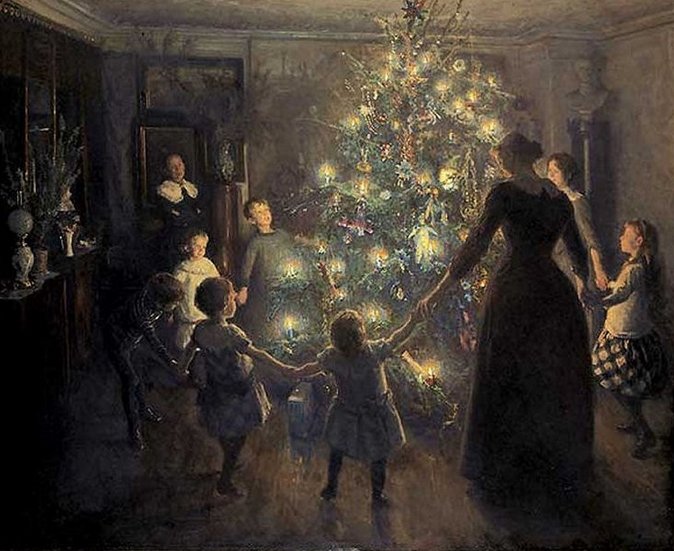
Pau.
1. To run out (food, water): ekó pau te
kai, te vai, is said when there is an
abundance of food or water, and there is no fear
of running out. Puna pau, a small natural
well near the quarry where the 'hats' (pukao)
were made; it was so called because only a
little water could be drawn from it every day
and it ran dry very soon. 2. Va'e pau,
clubfoot. Paupau: Curved. Vanaga. 1.
Hakapau, to pierce (cf. takapau, to
thrust into). Pau.: pau, a cut, a wound,
bruised, black and blue. 2. Resin. Mq.: epau,
resin. Ta.: tepau, gum, pitch, resin.
(Paupau) Hakapaupau, grimace, ironry, to
grin. 3. Paura (powder), gunpowder. 4.
Pau.: paupau, breathless. Ta.: paupau,
id. 5. Ta.: pau, consumed, expended. Sa.:
pau, to come to an end. Ma.: pau,
finished. 6. Ta.: pau, to wet one
another. Mq.: pau, to moisten. Churchill.
Paua
or pāua
is the Māori name given to three species
of large edible sea snails, marine gastropod
molluscs which belong to the family
Haliotidae (genus Haliotis), known in
the USA as abalone, and in the UK as ormer
shells ... Wikipedia.
...
In the morning of the world,
there was nothing but water. The Loon was
calling, and the old man who at that time bore
the Raven's name, Nangkilstlas, asked her
why. 'The gods are homeless', the Loon replied.
'I'll see to it', said the old man, without
moving from the fire in his house on the floor
of the sea. Then as the old man continued to lie
by his fire, the Raven flew over the sea. The
clouds broke. He flew upward, drove his beak
into [takapau]
the sky and scrambled over the rim to the upper
world. There he discovered a town, and in one of
the houses a woman had just given birth
... |
|
i oho era a Maeha.
raua ko Teke.ki vaenga |
After
Maeha and Teke had reached the middle [ki
vaenga] of the yam plantation, Oti and
Parahenga [Bara henga] went into the
house [ki roto ki te hare], picked up [he
too mai] the figure, put her on a stretcher
(rango) and carried her on board the
canoe. (There) they left her. |
|
ki te uhi.he uru
a Oti.raua ko Bara (sic!)
henga |
|
ki roto ki te
hare.he too mai i te moai
he haka(-) |
|
eke ki runga ki te
rango he tupa he
oho.ki runga |
|
ki te miro
he
hakarere. |
| Hei
para, 'ripening', this term refers to the
time when such plants as the banana or sweet
potato lose their fresh green colour and become
yellow, which is taken as a symbol of bad omen
or of death in the family. Vanaga. Hega.
Hegahega, reddish, ruddy. Hehega, to
dawn; ki hehega mai te raá, when the sun
rises. Vanaga. Hehegaraa, sunrise. PS
Sa.: sesega, to be dazzled as by the sun.
Fu.: sega, the beginning of daybreak. Niuē:
hegahega,
the red light or rays at sunset. Viti:
sesē, to
dawn. Churchill.
|
ko oto uta (ariki motongi 1): |
|
ko moe hiva |
ariki maahu |
1 |
|
ko tuku maura |
ariki maahu |
2 |
|
ko ngerani |
ariki maahu |
3 |
|
ko po |
ariki maahu |
4 |
|
ko henga |
ariki maahu |
5 |
Eke. To climb, to mount, to mount (a female
for copulating), to surface (of fish), and by
extension, to bite; he eke te kahi the
tuna bites. Vanaga. Trestle, stilt; to mount a
horse, to go aboard. Hakaeke, to cause to
mount, to carry on a boat. P Pau.: fakaeke,
to transport, to carry, to hang up. Mgv.: eke,
to embark, to mount upon an elevation. Mq.:
eke, to rise, to go aboard; hakaeke,
to heap up, to put upon, to raise. Ta.: ee,
to mount, to go aboard; faaee, to hang
up, to transport by water. Churchill.
Tupa.
Ancient buildings found scattered along the
coast; made of stone, and almost all of them
round, they served as shelters for fishermen.
Tupatupa, to carry (someone) on a stretcher;
to carry (a load) with the help of several
people. Vanaga. 1. Land crab. PS Mgv.: tutupa,
a large crayfish. Mq., Ta.: tupa, land
crab. Sa., To., Fu.: tupa, a land crab
with large claws. 2. Mixture, to carry,
tupatupa, to bring in one dead or wounded.
Tupapaku, corpse. T Pau.: tupapaku,
corpse, ghost. Mgv.: tupapaku, corpse,
sick person. Mq.: tupapaku, tupapaú,
id. Ta.: tupapau, corpse, ghost, specter.
Churchill. ... Compare also the type of
structure, mainly in the Lake Titicaca basin
area, called chullpa and Easter Island's
tupa, both apparently built as 'adoratorios',
in which mummies, skeletons, and skulls were
displayed and worshipped … where tupa
would be the expected Polynesian revaluation of
chullpa. Schumacher.
Hakarere, to leap. Churchill.
... At Mangaia the spirits of
those who ignobly died 'on a pillow' wandered
about disconsolately over the rocks near the
margin of the sea until the day appointed by
their leader comes (once a year). Many months
might elapse ere the projected departures of the
ghost took place. This weary interval was spent
in dances and revisiting their former homes,
where the living dwell affectionately remembered
by the dead. At night fall they would wander
amongst the trees and plantations nearest to
these dwellings, sometimes venturing to peep
inside. As a rule these ghosts were well
disposed towards their own living relatives; but
often became vindictive if a pet child was
ill-treated by a stepmother or other relatives
etc. Eventually the spirits would depart from
known reinga, spirit leaping-places. Such
leaping-places also existed on other islands.
Even after this departure some spirit intrusions
from the underworld were possible ... |
|
i tuu era a
Maeha.raua ki Teke.ki vaenga |
When
Meaha and Teke had reached the middle of the yam
plantation, they examined [he rarama] the
yams that the thieves had stolen [ko toke ana
e te kori].
Maeha enumerated the names [he nape i te
ingoa] of all the (varieties of) yam: |
|
ki te uhi.he rarama
i te uhi.ku toke ana e te |
|
kori.he nape i te
ingoa o te uhi.e Maeha. |
|
E:62 |
|
1
he tara
kura.a Maeha.a
Teke,koia ko ha(-) |
'The
first one TaraKura of Maeha and Teke.' That's
what it was (the variety of yam), that which was
(being put) in the basket for the benefit of
Teke, until the basket was completely filled
with yams (ka titi ro).
They tied up the first basket [he here te
taropa rae] and continued in the same manner
(? pera no, pera no) until all (?
ka paepae tahi ro) the baskets were
filled with yams. |
|
hao tokoa atu a
Teke.ki roto ki te taropa. |
|
i uhi.ka titiro te
taropa.he here te
ta(-) |
|
ropa rae.pera no.pera
no.ka paepae tahi |
|
ro.te taropa.te i i
te uhi. |
|
Tara. 1.
Thorn: tara miro. 2. Spur: tara moa.
3. Corner; te tara o te hare, corner of
house; tara o te ahu, corner of ahu.
Vanaga. (1. Dollar; moni tara, id.) 2.
Thorn, spike, horn; taratara, prickly,
rough, full of rocks. P Pau.: taratara, a
ray, a beam; tare, a spine, a thorn.
Mgv.: tara, spine, thorn, horn, crest,
fishbone. Mq.: taá, spine, needle, thorn,
sharp point, dart, harpoon; taa, the
corner of a house, angle. Ta.: tara,
spine, horn, spur, the corner of a house, angle.
Sa.: tala, the round end of a house. Ma.:
tara, the side wall of a house. 3. To
announce, to proclaim, to promulgate, to call,
to slander; tatara, to make a genealogy.
P Pau.: fakatara, to enjoin. Mq.: taá,
to cry, to call. 4. Mgv.: tara, a species
of banana. Mq.: taa, a plant, a bird.
Ma.: tara, a bird. 5. Ta.: tara,
enchantment. Ma.: tara, an incantation.
6. Ta.: tara, to untie. Sa.: tala,
id. Ha.: kala, id. Churchill. Kura.
1. Also: poukura, the short, thin,
multicoloured feathers of chickens and other
birds. 2. The best of something, choice. Vanaga.
Tutui kura, shawl. Kurakura, fair,
light. Hakakurakura, to make to blush. P
Pau.: kurakura, red, violet. Mgv.:
kurakura, red, yellow, scarlet. Mq.: uáuá,
red, ruddy. Ta.: uraura, red. Churchill.
Here. 1. To catch eels in a snare of
sliding knots; pole used in this manner of
fishing, with a perforation for the line. 2. To
tie, to fasten, to lash; rasp made of a piece of
obsidian with one rough side; cable, tie;
figuratively: pact, treatise. Vanaga. 1. To
lash, to belay, to knot the end of a cord, to
lace, to tie, to fasten, to knot; to catch in a
noose, to strangle, to garrote; here pepe,
to saddle; moa herea, a trussed fowl;
hehere, collar, necklet; herega,
bond, ligament; heregao, scarf, cravat.
2. Hakahere. To buy, to sell, to barter,
to part with, to pay for, to do business, to
compensate, to owe, to disburse, to expiate, to
indemnify, to rent out, to hire, to traffic, to
bargain, to bribe; merchant, trader, business,
revenge; tagata hakahere, merchant,
trader; hakahere ki te ika, to avenge;
hakaherega, ransom, redemption;
hakahererua, to exchange, to avenge. 3.
Here ei hoiho, incense. Churchill. Hereke,
festering wound, cracked skin. Barthel 2.
Pera.
Ta.: A corpse.
Ha.: pela,
the putrid flesh and bowels of a dead body when
the bones where removed. Churhill.PELA,
s. Haw.,
putrid flesh, burnt bones, offal, filth;
v. be
unclean, to stink;
pela-pela,
id. Tong.,
pela,
corruption. Tah., pera,
filth, dirt, cadaver. Fiji., vela-vela,
filthy, disgusting. Sanskr., phela,
orts, leavings, droppings. Fornander. |
There were 10 varieities of he tara uhi,
followed by 31 other types (E:62-64), i.e. 41 in all.
As to bodies after its bones ('ribs') had been removed - pera
-
the association intented could have been the Beehive in Cancer:
... The Spirit Bird of the Sun possibly
corresponds to the Chinese station Ghost. Its leading
star is said to be 'q Cancri'. Strangely the internet site
Chinese Astronomy never uses Greek letters for the
stars, e.g. is Tejat Posterior (μ
Gemini) referred to as 'm Gemini'. However, there is no
Greek letter corresponding to the letter 'q'. Possibly the
idea was to refer to the ancient Greek letter koppa,
a reasonable sign for something dead and only living on in
peoples' minds.
There is no star q Cancri (or similar)
according to Wikipedia.
The
otherwise most obvious choice could have been the Beehive
star (ε
Cancri), where the Bees (flying souls) should swarm around.
Allen: In China it was known by the unsavory title Tseih
She Ke, Exhalation of Piled-up Corpses ...
... Night came, midnight came, and Tuu
Maheke said to his brother, the last-born: 'You go and
sleep. It is up to me to watch over the father.' (He said)
the same to the second, the third, and the last. When all
had left, when all the brothers were asleep, Tuu Maheke
came and cut off the head of Hotu A Matua.
Then he covered everything with soil. He hid (the head),
took it, and went up. When he was inland, he put (the head)
down at Te Avaava Maea. Another day dawned, and the
men saw a dense swarm of flies pour forth and spread out
like a whirlwind (ure tiatia moana) until it
disappeared into the sky. Tuu Maheke understood. He
went up and took the head, which was already stinking in the
hole in which it had been hidden. He took it and washed it
with fresh water. When it was clean, he took it and hid it
anew. Another day came, and again Tuu Maheke came and
saw that it was completely dried out (pakapaka). He
took it, went away, and washed it with fresh water until
(the head) was completely clean. Then he took it and painted
it yellow (he pua hai pua renga) and wound a strip of
barkcloth (nua) around it. He took it and hid it in
the hole of a stone that was exactly the size of the head.
He put it there, closed up the stone (from the outside), and
left it there. There it stayed
...
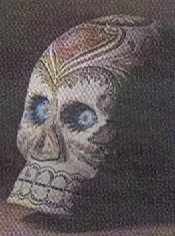
Between
Gemini and Hydra the Chinese saw a quincunx sign:
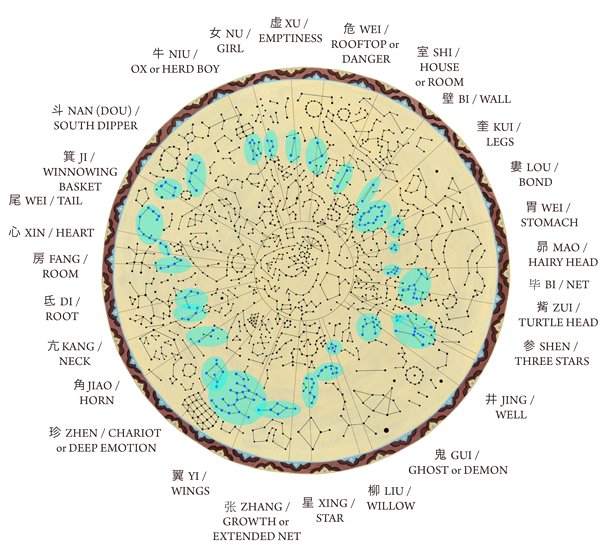
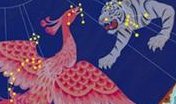

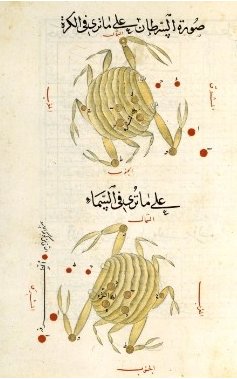
|
MAY
20 (140) |
21 |
22 |
23
(*63) |
24
(144 = 12 * 12) |
 |
 |
 |
 |
 |
|
Ga3-1 (60) |
Ga3-2 |
Ga3-3 |
Ga3-4 |
Ga3-5 |
|
CLOSE TO
THE SUN: |
|
AL TARF
(The
End) = β Cancri
(124.3)
RAS
ALGETHI (α Herculis)
|
χ Cancri (125.2),
BRIGHT FIRE = λ Cancri
(125.4)
*84.0 = *125.4 - *41.4 |
AVIOR = ε Carinae
(126.4), φ Cancri (126.8)
*85.0 = *126.4 - *41.4 |
ο Ursae Majoris (127.4)
*86.0 = *127.4 - *41.4 |
Pushya-8 (Nourisher)
υ Cancri (128.1),
θ
CANCRI
(128.2) |
|
July
23 (204) |
24 (*125) |
25 |
26 |
27 (208) |
|
°July 19 (200) |
20 (*121) |
21 |
22 / 7 |
23 (204) |
|
26 (177 = 6 *
29½) |
'June 27 |
28 |
29 (*100) |
SIRIUS |
|
"June 12 |
13 (*84) |
14 (165 + 365) |
Te Maro 15
(18 * 29½) |
16 |
|
Makoi
got up and began to familiarize himself with the
(new) land. (This took place) on the fifteenth
day of the month of June ('Maro'). He
went toward the sheer face of the rocks (titi
o te opata), was astonished (aaa),
came up to the middle (of the outer rim of the
crater), and stood at the very edge.
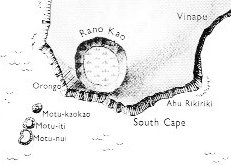
He looked
down and saw the 'Pu Mahore of
Hau Maka' (on the coast) and said,
'There it is, the hole of the mahore fish
of Hau Maka!' He turned his face and
looked toward the back (i.e., in the direction
of the crater). No sooner had he seen how the
dark abyss opened up (below him), when a
fragrant breeze came drifting by. Again Makoi
said, 'This is the dark abyss of Hau
Maka'. He turned
around, walked on in utter amazement, and
arrived at the house. He spoke to Ira,
'Hey you, my friends! How forgetful we (truly)
are. This place is adequate (? tau or
'beautiful'), the dark abyss lies there
peacefully!' Ira
replied, 'And what should that remind us of up
here?' All arose and climbed up. They went on
and arrived; they all had a good look (at the
inside of the crater). They returned home and
sat down. Night fell, and they went to sleep. |
|
The 4
places which Makoi saw by himself:
Possibly
these places were alluding also to the
change from the Julian spring equinox to the
Gregorian spring equinox:
... When the Pope
rearranged the day for spring equinox from
number 84 ('March 25) to number 80 (ºMarch
21) the earlier Julian structure was buried,
was covered up (puo). At the same
time the Pope deliberately avoided to
correct the flow of Julian calendar days for
what he may have regarded as 4 unneccesary
leap days prior to the Council of Nicaea.
Thus his balance sheet for days was in
order. The day numbers counted from the
equinox were increased with 4 and this was
equal to allowing the 4 'unneccessary' leap
days to remain in place. But he had moved
spring equinox to a position which was 4
days too early compared to the ancient model
... These '4
unneccessary leap days' (prior to the
Council of Nicaea) were equal in number to
the precessional distance in time between
the Pope and the time of rongorongo. The
Gregorian calendar could therefore be easily
understood by the Easter Islanders. The Pope
had created a 'crooked calendar' but since
his time the precession had fixed it
...
 |
|
MAY 25
(5-25) |
26 (*266) |
27 |
28 (348) |
 |
 |
 |
 |
|
Ga3-6 |
Ga3-7 |
Ga3-8 |
Ga3-9 (68) |
|
CLOSE TO
THE SUN: |
|
Āshleshā-9 (Embrace) /
Willow-24 (Stag)
π¹ Ursa Majoris,
δ HYDRAE (129.6),
AL MINHAR AL SHUJĀ = σ Hydrae, MUSEIDA = π²
Ursae Majoris
(129.9)
RAS
ALHAGUE (α Ophiuchi) |
Al Nathrah-6 (Gap)
BEEHIVE (Exhalation
of Piled-up Corpses)
= ε Cancri,
η Pyxidis (130.4),
XESTUS = ο Velorum
(130.5), ζ Pyxidis (130.7),
ASCELLUS BOREALIS = γ Cancri,
β Pyxidis (130.9)
*89.0 = *130.4 - *41.4 |
Extended Net-26a (Ox) /
Arkū-sha-nangaru-sha-shūtu-12
(Southeast Star in the Crab)
η Hydrae (131.0),
ASCELLUS AUSTRALIS = δ Cancri
(131.4),
KOO SHE (Bow and Arrow) = δ Velorum
(131.6), α Pyxidis
(131.8),
ε Hydrae
(131.9)
*90.0 = *131.4 - *41.4 |
ι Cancri (132.0), ρ Hydrae (132.4)
*91.0 = *132.4 - *41.4 |
|
... A man had a daughter who possessed a
wonderful bow and arrow, with which she was
able to bring down everything she wanted.
But she was lazy and was constantly
sleeping. At this her father was angry and
said: 'Do not be always sleeping, but take
thy bow and shoot at the navel of the ocean,
so that we may get fire.' The navel of the
ocean was a vast whirlpool in which sticks
for making fire by friction were drifting
about. At that time men were still without
fire. Now the maiden seized her bow, shot
into the navel of the ocean, and the
material for fire-rubbing sprang ashore.
Then the old man was glad. He kindled a
large fire, and as he wanted to keep it to
himself, he built a house with a door which
snapped up and down like jaws and killed
everybody that wanted to get in. But the
people knew that he was in possession of
fire, and the stag determined to steal it
for them. He took resinous wood, split it
and stuck the splinters in his hair. Then he
lashed two boats together, covered them with
planks, danced and sang on them, and so he
came to the old man's house. He sang: 'O, I
go and will fetch the fire.' The old man's
daughter heard him singing, and said to her
father: 'O, let the stranger come into the
house; he sings and dances so beautifully.'
The stag landed and drew near the door,
singing and dancing, and at the same time
sprang to the door and made as if he wanted
to enter the house. Then the door snapped
to, without however touching him. But while
it was again opening, he sprang quickly into
the house. Here he seated himself at the
fire, as if he wanted to dry himself, and
continued singing. At the same time he let
his head bend forward over the fire, so that
he became quite sooty, and at last the
splinters in his hair took fire. Then he
sprang out, ran off and brought the fire to
the people ... |
|
July 28 |
29 (*130) |
30 |
31 (212) |
|
°July 24 |
25 |
26 (*127) |
27 (208) |
|
'July 1 |
2 |
3 (*104) |
4 (185) |
|
"June 17
Te Kioe Uri |
18
Te Piringa Aniva |
19 (*90)
Te Pei |
20 (171 = 185 - 14)
TE POU |
|
When it grew light, Makoi
arose again. He went off to further explore
the area. He went along and came to the
'dark rat'. He looked around and said: 'Here
we are at the dark rat of Hau Maka'.
He gave it the name Te Kioe Uri A Hau
Maka. He went on and came to Te
Piringa Aniva. When he arrived there, he
looked around and gave the name Te
Piringa Aniva. He went on and came to
Te Pei, looked around, and said, 'Here
it is!' So he gave the name Te Pei A Hau
Maka. He went on, all alone he went on,
and came to Te Pou. When he arrived
there, he looked around and again said,
'Here it is!' and gave the name Te Pou A
Hau Maka. |
|
For some reason nothing was
said about Te Manavai, which in the
journey of the kuhane came between
Poko Uri and Te Kioe Uri.
... The dream soul
climbed up and reached the rim of the
crater. As soon as the dream soul looked
into the crater, she felt a gentle
breeze coming toward her. She named the
place 'Poko Uri A Hau Maka O Hiva'.
The dream soul continued her search for
a residence for King Matua.
The dream soul of Hau Maka
reached (the smaller crater) Manavai
and named the place 'Te Manavai A Hau
Maka O Hiva'. The dream soul went
on and reached Te Kioe Uri. She
named the place 'Te Kioe Uri A Hau
Maka O Hiva' ...
... Manavai Hollow where rainwater
accumulates; anciently, small, round
gardens, preferably situated in low shady
spots, where the mahute tree was
grown. Vanaga. 1. Brain. 2. Valley, ravine,
river, torrent, brook; manavai miro,
orchard, Mq.: manavai, valley,
brook. Ta.: anavai, river,
brook. It scarcely appears that these are
fully coordinate. In Tahiti anavai
has a clear etymology, ana
meaning the bed of a stream. In
Rapanui and in the Marquesas mana
most readily associates with maga, as
water in a forked bed. Churchill
...
However, Manuscript E seems
to offer an explanation in the way Makoi
remembered how he documented the name: ... I
wrote (ta) Te Manavai A Hau Maka
on the surface of a banana leaf (kaka),
and this is how I left it ... |
|

























